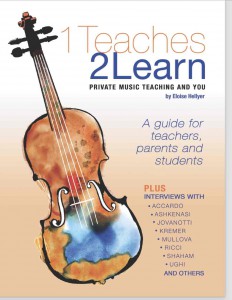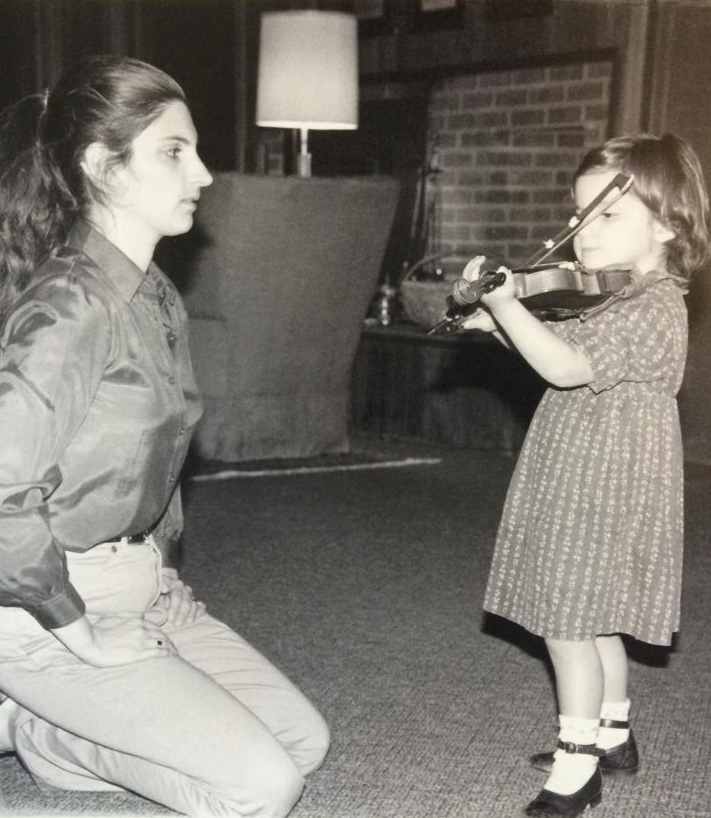Patience Traps, Part 3: Students, part e
You have tried everything. You have reasoned, pleaded, cajoled, stood on your head, jumped through hoops, threatened, manipulated, bargained and anything else you could think of. Nothing has worked. Your student still doesn’t practice. What to do? You have two choices.
- You give up
- Or not.
Before you make a decision, first ask yourself a question. If the parents continue to send their children to lessons (and pay you for them), and these students still want to come to lessons, do they know something you do not? Are they getting something from your lessons that you are unaware of?
The answer to both questions, is “Most probably, yes.”
First, let’s deal with option number 1.
GIVING UP
If you decide to give up, you must first realize who it is you are giving up on. It isn’t your student – it’s yourself. You do not believe in your capacities as a teacher enough to continue what you perceive is a fruitless enterprise.
The problem with giving up on yourself is that the student will feel you have given up on him. Is this what you want to transmit? What will be the effect on a child when the teacher throws in the towel and truncates the most intense didactic relationship that student will probably ever have? We must stop and think about this before dismissing a student. And we must be very careful about how we do it.
So let us say that you are the type of teacher who cannot or will not tolerate non-practicing students. THERE IS NOTHING WRONG WITH THIS. As long as you are up front about it. There are teachers who require that new parents sign a sort of contract which stipulates practicing and general conduct. Fine. This way everyone knows the score. Most parents who would sign an agreement like this are usually are very serious about living up to their part of the bargain anyway.
Let’s say, however, that you do not have a written agreement with the parents, which is more commonly the case, even though you thought everything was clear when the student started lessons with you. Let’s say you are fed up with giving the same lesson over and over and you want to get rid of the student. Go right ahead, provided that you make it clear to the parents and the student that the problem is YOURS and not theirs. YOU have failed, not they. Tell the parents that you have failed to get through to the student (or to them) and give them the name of another teacher who will be more suited to the child. I say this because I once met a well-known teacher-trainer who, when I asked what (s)he (I am being vague on purpose) did about chronic non-practicers, told me that (s)he would give them something too difficult so they would get discouraged and quit on their own. This is not teaching, nor is it honest. It’s just a way for the teacher to get rid of a troublesome student without a thought to the psychological effect this action may have. This teacher, who had a waiting list of students wanting to start anyway, had disposed of a problem and felt much better. How was the student, however? At best, the student felt undisciplined and incapable and it was NOT THIS CHILD’S FAULT. Even when you have ample reason to blame the parents, the child is the one who pays the price. I tremble to think how students in this situation will feel about their musical experience when they grow up. Students trust their teachers to assign them pieces and studies of appropriate difficulty. When that trust is broken, as in cases like this, the students’ perceived lack of competence and resulting loss of faith in themselves will probably follow them for the rest of their lives.
When we teach, our comfort is not important. The student’s is. Therefore, if you cannot tolerate a difficult parent, student, or situation, call a spade a spade and tell the truth. You will be respected for it. We all have our limitations. It is important to recognize them and not inflict them upon our students and their parents by absolving yourself of responsibility through manipulation. “I didn’t make you quit – you got fed up on your own” is a totally unethical approach and shame on the teacher who uses it.
There is, however, another choice you can make…….
Next: How NOT to give up without losing your mind.
Share this:
Buy it on www.sharmusic.com - eBook format, avaliable worldwide, paperback in North America
COPYRIGHT
ABOUT
A music teacher’s thoughts and observations on the teaching and the study of a musical instrument, hoping to be of help to parents, students and teachers.
PHOTO
AWARDED TOP 25 VIOLIN BLOG
CATEGORIES
TAGS
ARCHIVES
-
Agosto 2022
Agosto 2023
Agosto 2024
April 2015
April 2016
April 2017
April 2019
April 2020
Aprile 2022
Aprile 2023
Aprile 2024
August 2014
August 2015
August 2016
August 2017
August 2018
August 2019
August 2021
December 2014
December 2015
December 2016
December 2017
December 2018
December 2019
December 2020
Dicembre 2022
Dicembre 2023
Dicembre 2024
Febbraio 2022
Febbraio 2023
Febbraio 2024
February 2015
February 2016
February 2018
February 2019
February 2020
February 2021
Gennaio 2022
Gennaio 2023
Gennaio 2024
Giugno 2022
Giugno 2022
Giugno 2023
Giugno 2024
January 2015
January 2016
January 2017
January 2018
January 2019
January 2020
July 2015
July 2017
July 2019
June 2016
June 2017
June 2018
June 2019
June 2020
June 2021
Luglio 2022
Luglio 2023
Luglio 2024
Maggio 2022
Maggio 2023
Maggio 2024
March 2015
March 2016
March 2017
March 2018
March 2019
March 2020
March 2021
Marzo 2022
Marzo 2023
Marzo 2024
May 2015
May 2016
May 2018
May 2019
May 2020
November 2014
November 2015
November 2016
November 2017
November 2018
November 2019
November 2021
Novembre 2022
Novembre 2023
Novembre 2024
October 2014
October 2015
October 2017
October 2018
October 2019
October 2020
October 2021
Ottobre 2022
Ottobre 2023
Ottobre 2024
September 2014
September 2015
September 2016
September 2018
September 2019
September 2020
September 2021
Settembre 2022
Settembre 2023
Settembre 2024
RECENT POSTS
Terry G and Me, or Terry Gilliam on Where (or What) Practicing the Piano Will Get You…
The Teaching We Don’t Do Is More Important Than We Think
Overwhelmingness or What Teaching and Motherhood* Have in Common
Cellphone Serenity
How to Build Your Reputation – the Kind You Want
Desperate Times, Desperate Measures. Or How to Deal With Your Strong-Willed Stubborn Student and Survive
“Why Does My Teacher Get So Frustrated?” Letter to a Perplexed Student
Mount Rush-no-more….And How to Get There
Realizzato con VelociBuilder - Another Project By: Marketing:Start! - Privacy Policy




